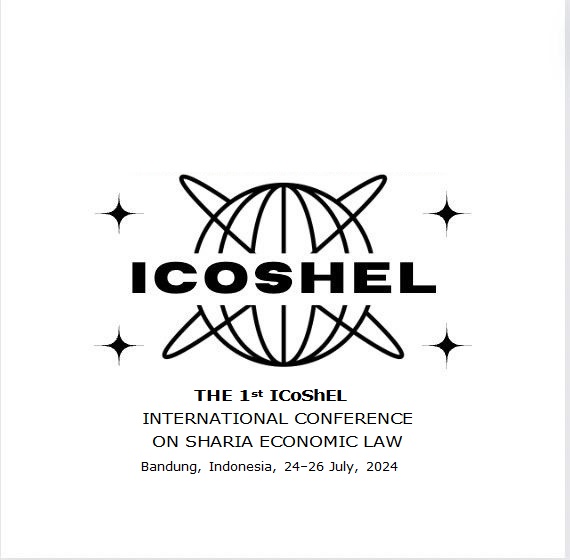Peer to Peer Lending Syari’ah
Wadah Investasi Bisnis Sektor Riil untuk Pengembangan UMKM
DOI:
https://doi.org/10.47766/alhiwalah.v2i1.1471Keywords:
Sharia Peer to Peer Lending, Real-Sector Investment, MSMEAbstract
The interest of Indonesian people in investing in real sector businesses, particularly MSMEs, is relatively low due to high risks and business uncertainties. Unfortunately, Sharia Financial Institutions have not played an active role in channeling cooperation-based financing. Instead, they have mostly focused on channeling murabahah financing under the buying and selling scheme. However, Sharia P2P Lending can help develop the real sector and have a positive impact on the national economy by reducing bureaucracy and complicated requirements. Sharia P2P Lending is an investment platform in real sector businesses that benefits business actors and investors. The use of Sharia P2P Lending can encourage the public to invest in the real sector because of the following reasons: (1) it provides a safe investment with higher returns compared to conventional investments, (2) it offers access to invest in the real sector with relatively small capital, (3) it allows investors to choose business actors and monitor their investment performance, (4) it has relatively low transaction costs and is easy to conduct transactions online, and (5) it provides protection through risk management and financing management policies carried out by the company.
References
Abi, Fransiskus Paulus Paskalis. Semakin Dekat Dengan Pasar Modal Indonesia. Yogyakarta: Penerbit Deepublish, 2016.
Badriyah, Nurul. “Peran Intermediasi Perbankan Terhadap Usaha Mikro Kecil Dan Menengah (UMKM).” Jurnal Ekonomi Pembangunan 7, no. 2 (2009).
Fajar, Mukti. UMKM Dan Globalisasi Ekonomi. Yogyakarta: LP3M UMY, 2015.
Fatihudin, Didin. Membedah Investasi Menuai Geliat Ekonomi. Yogyakarta: Penerbit Deepublish, 2019.
Hidayat, Wastam Wahyu. Konsep Dasar Investasi Dan Pasar Modal. Ponorogo: Uwais Inspirasi Indonesia, 2019.
Lova, Evi Fajriantina. “Financial Technology Peer To Peer Lending Syariah: Sebuah Perbandingan Dan Analisis.” Jeblr 1, no. 2 (2021): 29–41.
Nugroho, Agus Eko. Komersialisme Kredit Usaha Rakyat Untuk Pemberdayaan UMKM Di Indonesia. Komersialisme Kredit Usaha Rakyat Untuk Pemberdayaan UMKM Di Indonesia. Jakarta: Lipi Press, 2016.
Pardiansyah, Elif. “Investasi Dalam Perspektif Ekonomi Islam : Pendekatan Teoritis Dan Empiris.” Economica: Jurnal Ekonomi Islam 8, no. 2 (2017): 337–373.
Pujiyono, Aris, Rof’ah Setyowati, and Idris. “Strategi Pengembangan UMKM Halal Di Jawa Tengah Dalam Menghadapi Persaingan Global.” Indonesian Journal of Halal (2018): 2.
Sakinah. “Investasi Dalam Islam.” Iqtishadia 1, no. 2 (2014): 248–262.
Setiawan, Mia Angelina. “Peranan Investasi Sektor Riil Untuk Meningkatkan Perekonomian Di Sumatera Barat Dalam Menghadapi Masyarakat Ekonomi ASEAN.” In SEMINAR NASIONAL EKONOMI MANAJEMEN DAN AKUNTANSI (SNEMA). Vol. 1. Padang: Fakultas Ekonomi Universitas Padang, 2015.
Sukoco, Johan Bhimo. “Kapasitas Kelembagaan Dalam Pembinaan Usaha Mikro Kecil Dan Menengah Di Kota Surakarta.” Jurnal Administrasi Bisnis 8, no. 1 (2019): 15–22.
Syafitri, Mega Novita, and Fitri Nur Latifah. “Fintech Peer To Peer Lending Berbasis Syariah Sebagai Alternatif Permodalan UMKM Sidoarjo.” JIEI: Jurnal Ilmiah Ekonomi Islam 9, no. 01 (2023): 1438–1447.
Wibisono, Adam Mukti, and Betha Nurina Sari. “Sistem Pakar Penentu Profil Risiko Investasi.” Journal of Information System 7, no. 1 (2022): 79–89.
Downloads
Published
Issue
Section
License
Copyright (c) 2023 Fauzia Ulirrahmi

This work is licensed under a Creative Commons Attribution-NonCommercial-ShareAlike 4.0 International License.







